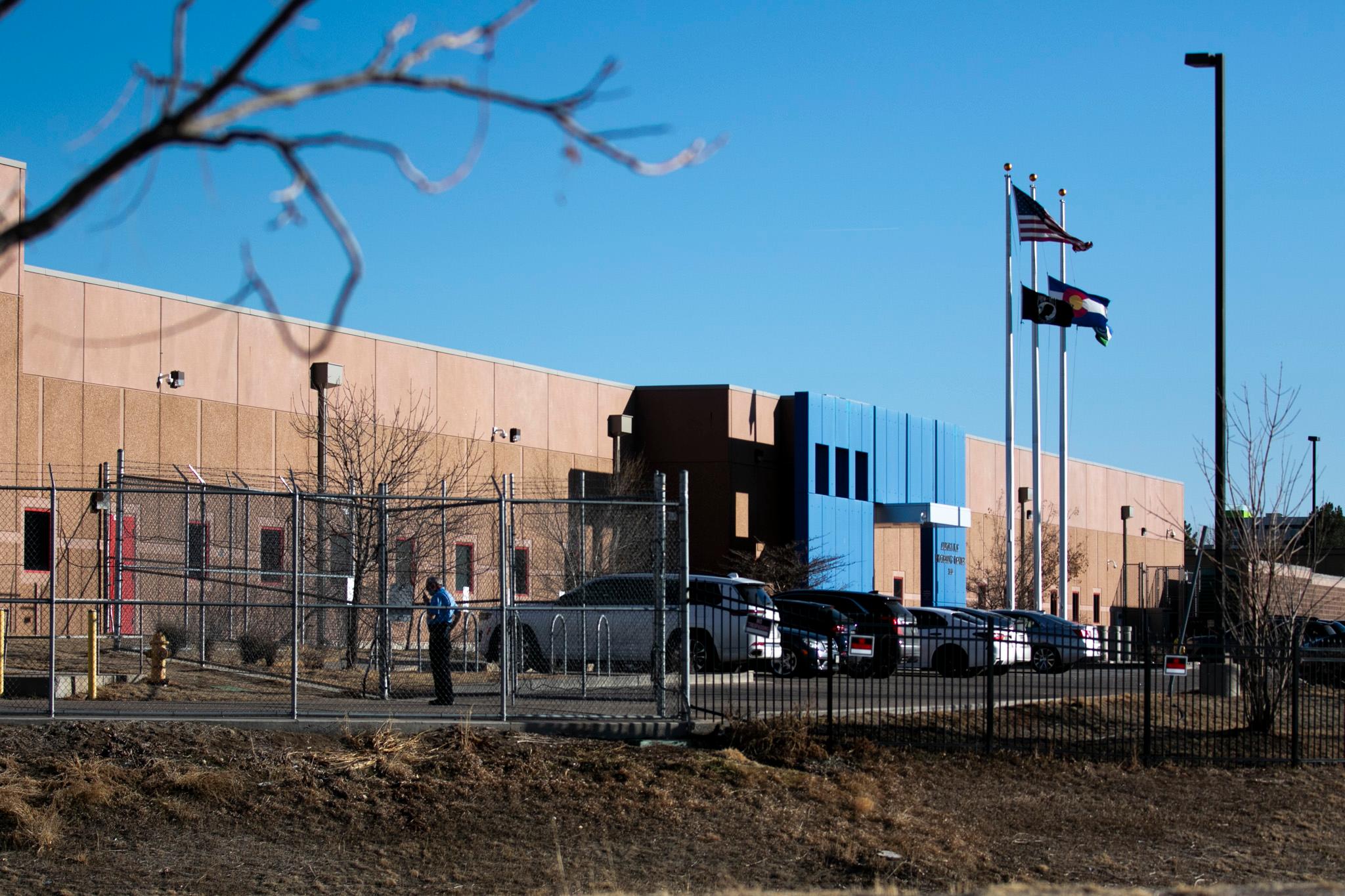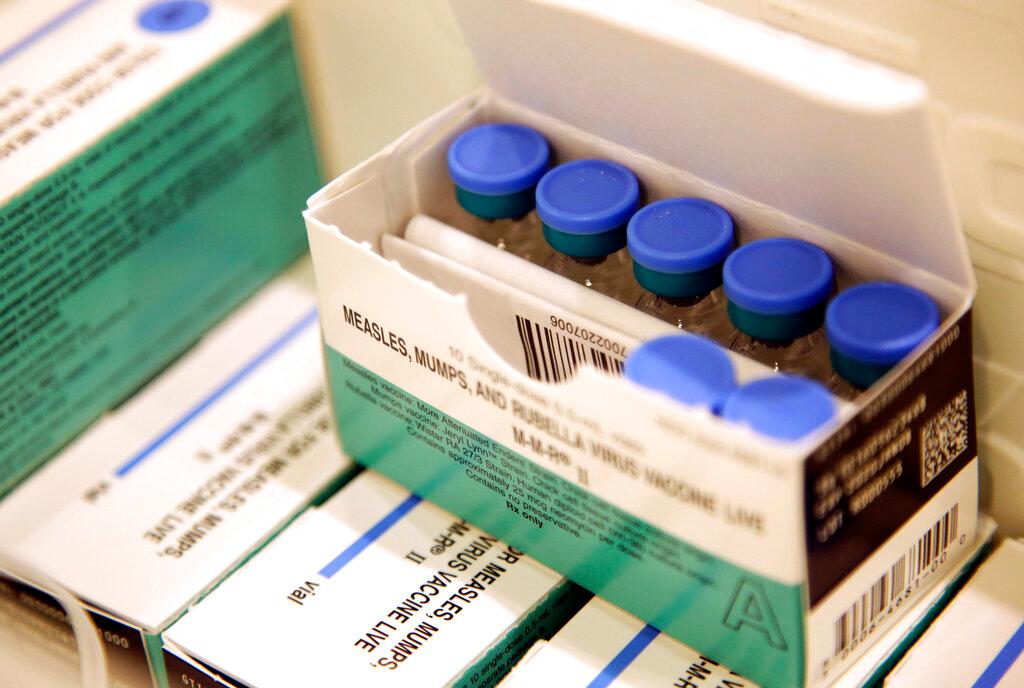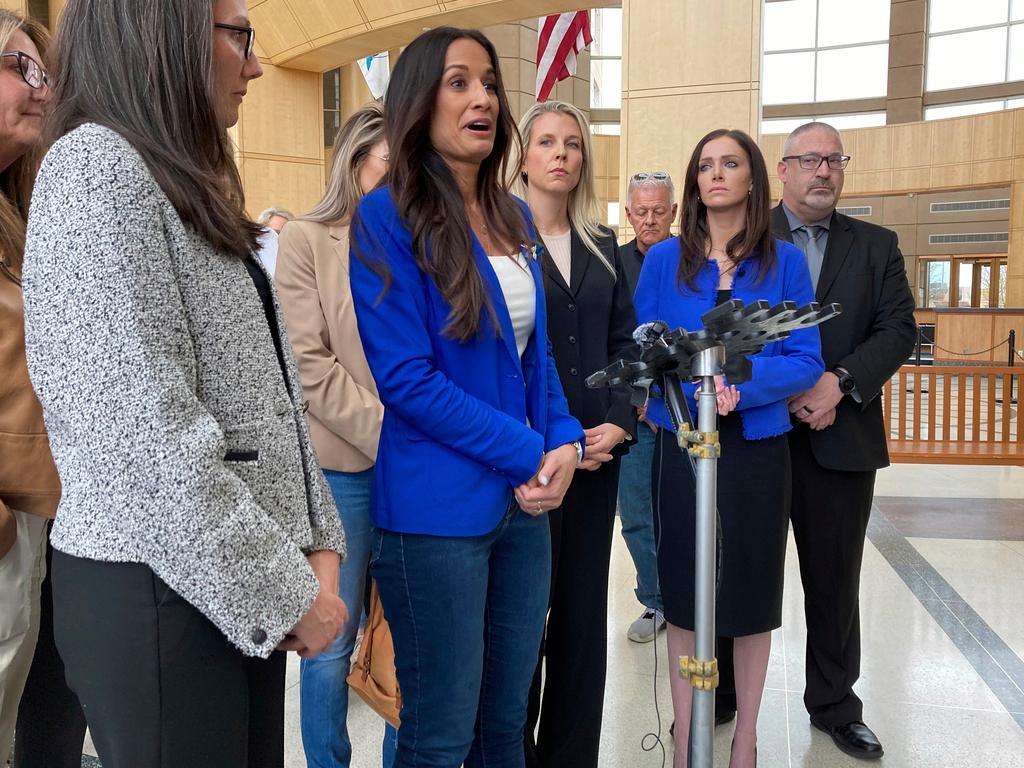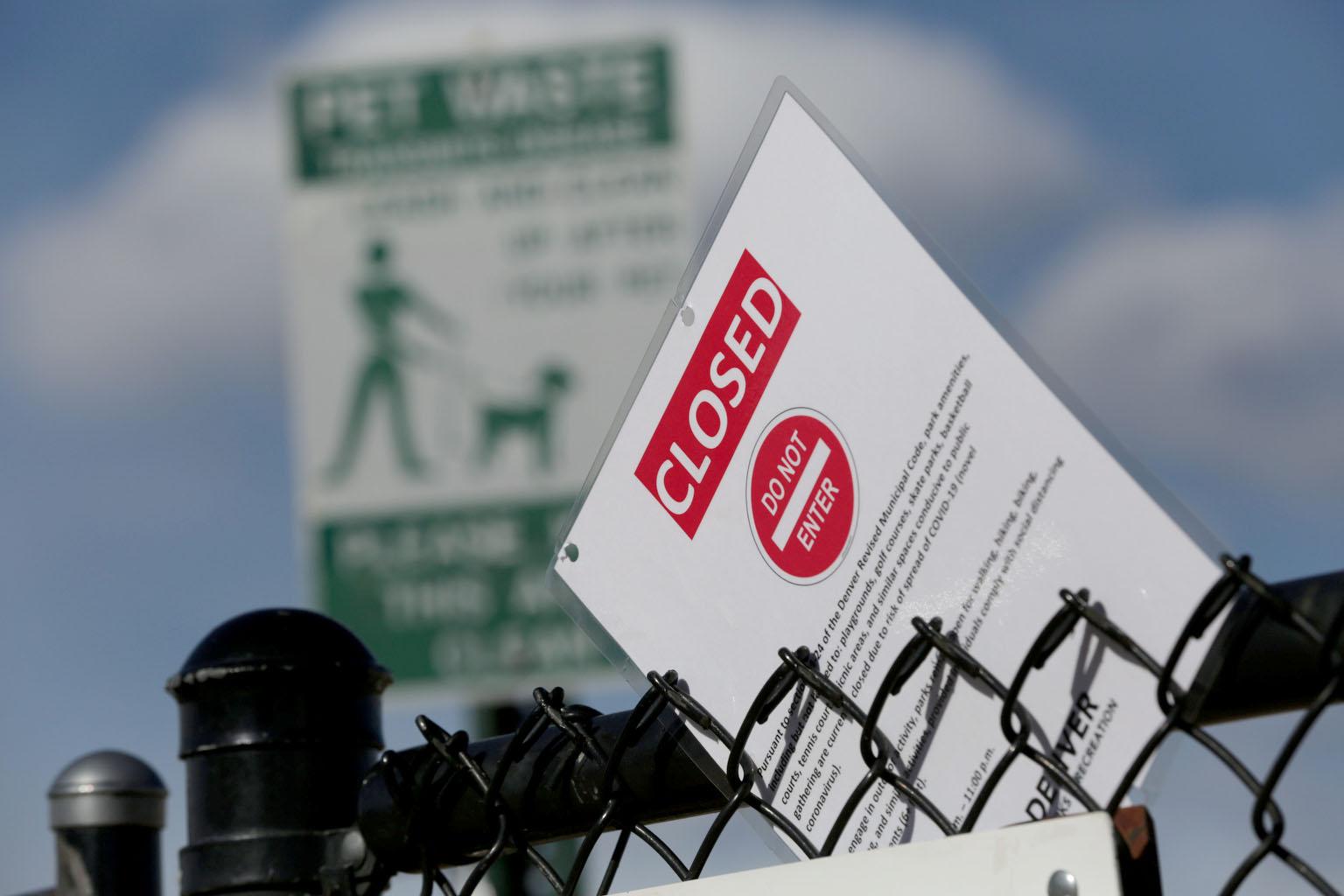
This post collects all of our reporting and updates on the coronavirus in Colorado for Thursday, March 26, 2020. You can find our live blog on what's happening on Friday here. Our original play-by-play of reporting continues below.
6:28 p.m. — The most heartwarming rickroll ever
— Alex Scoville
5:05 p.m. — A Sterling parole officer tested positive for COVID-19
A parole officer at the state Department of Corrections has tested positive for COVID-19.
The staffer, who worked in Sterling, did not work inside a prison, but officials are working to track down the parolees and others the staffer may have been in contact with.
Other Corrections staffers have been tested, state officials said, and those results are pending. Officials have also tested nine prisoners for COVID-19, six tested negative and three tests are pending. Anyone with positive results, or a test pending, is put on administrative leave.
— Allison Sherry
5:01 p.m. — BTW, Tax Day is in July now
State and federal authorities recently announced a three-month break for residents to file and pay their taxes. That means most individuals who pay taxes in Colorado can automatically wait until July 15, 2020, to turn their money over to the government.
— Andy Kenney
4:12 p.m. — There are now 1,430 cases of COVID-19 in Colorado
New numbers from state health officials show 1,430 cases of COVID-19 in Colorado, an increase of 344 since the previous day.
The state also completed a significant number of tests over the last day, more than 2,000, as it clears its backlog.
There are now 24 deaths due to COVID-19, an increase of five since yesterday.
There are 36 more cases in hospitalization, bringing the total to 184.
— Alex Scoville
3:36 p.m. — A Colorado Avalanche player tested positive for COVID-19
A Colorado Avalanche player has tested positive for COVID-19, according to a release from the team.
The player has been in isolation since symptoms first appeared and has already recovered. The Avalanche say they have notified anyone who was in contact with them.
— Alex Scoville
3:15 p.m. — With coronavirus tests still hard to come by, Colorado will focus on first responders
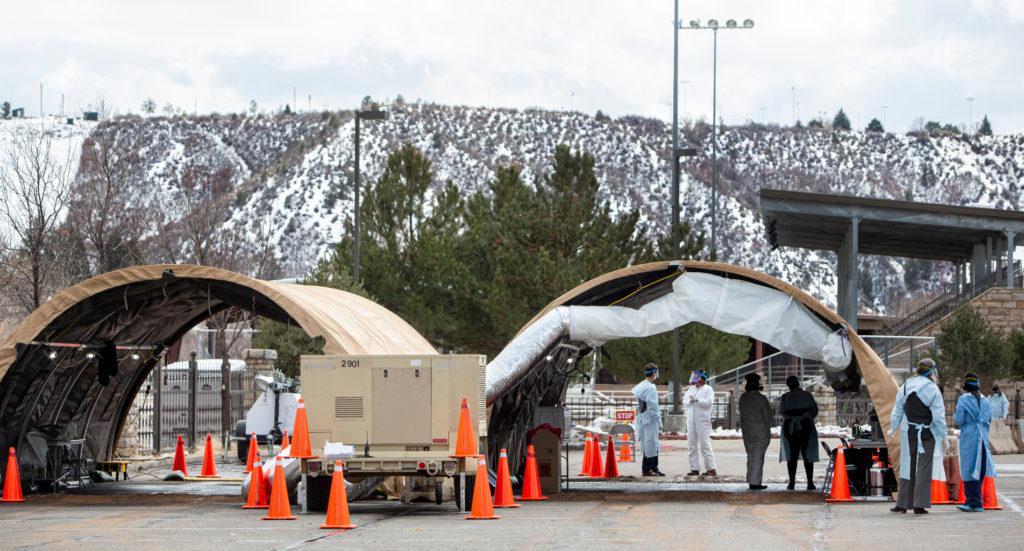
While Colorado has seen isolated pockets with large numbers of patients seeking medical care for COVID-19, officials worry that the big surge is yet to come.
"There's no evidence that any part of the state is truly seeing a surge that is having a negative impact on the health care system so far," said Scott Bookman, the incident commander for the Colorado Department of Public Health and the Environment.
Since tests are still hard to come by, Colorado will focus on health care workers and first responders. Bookman noted that the lack of adequate testing has made it challenging to contain outbreaks throughout the state and identify the greatest areas of need.
The hope is to do much more widespread testing as soon as possible. In the meantime, they've "used modeling data from other states and countries to try to understand what the future may hold for Colorado."
— Andrea Dukakis
3:02 p.m. — Forest Service closes campgrounds and other facilities
The U.S. Forest Service is closing off access to a number of its facilities and resources in Colorado and other states in the region to fight the spread of COVID-19. Those include:
- Campgrounds
- Restrooms
- Cabin and fire lookout rentals
- Picnic sites
- Trash cans
While the Forest Service is recommending trailheads also close, local forest offices can choose to keep theirs open if they deem it safe.
The Forest Service is also discouraging hunting, fishing and trail use.
"We ask that all individuals comply with the guidance in every way possible to protect our employees, their families and community members. Visitors should be prepared for limited services (such as restroom facilities and garbage collection) and need to be prepared to pack out all trash and human waste. We will review this guidance on an ongoing basis and will consider lifting restrictions based on conversations with states and local governments," the statement read.
Forest Service land in Colorado includes the Arapaho, Roosevelt, Grand Mesa, Uncompahgre, Gunnison, Pike-San Isabel, Rio Grande, San Juan and White River national forests as well as the Cimarron-Comanche and Pawnee national grasslands.
Hanging Lake, one of the state's most popular trails, is in the White River National Forest.
Update 5:01 p.m.: This entry has been updated to reflect a clarification from the Forest Service on their trailhead closure recommendation.
— Alex Scoville
2:38 p.m. — Colorado's Congress members back Polis' request for a disaster declaration
Colorado Gov. Jared Polis is getting congressional support for a major disaster declaration for the state due to COVID-19.
Almost all members of the delegation signed a letter to President Donald Trump, asking him to approve Polis's request for the declaration.
Democratic Rep. Joe Neguse says the full weight of the federal government is needed to help protect Coloradans during this public health crisis. The letter notes that the state has a severe shortage of personal protective gear and that additional labs, medical equipment and more health professionals will be necessary for the growing need of Colorado.
“This outbreak is of such severity and magnitude that effective response and recovery is beyond the capabilities of the State, Tribal governments and affected local governments alone,” the letter state.
Republican Rep. Ken Buck was the only one who didn't sign. CPR reached out to his office for comment.
A disaster declaration would free up additional resources for Colorado to use as it combats this pandemic.
Trump has issued declarations in at least 10 states from California to North Carolina.
— Caitlyn Kim
2:23 p.m. — A CU Anschutz donation drive collected lots of personal protective equipment
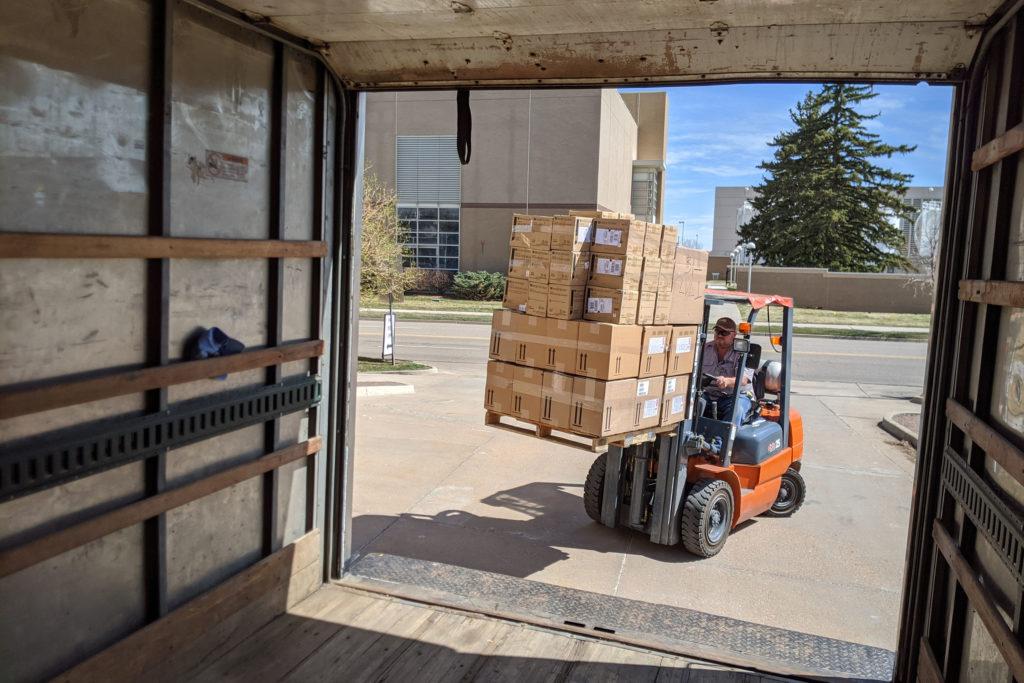
Personal protective equipment, such as masks, gloves and gowns are in short supply across the state. To combat the shortages, the University of Colorado Anschutz Medical Campus is wrapping up a week-long donation drive to collect health care supplies from idled labs and schools on the Medical Campus and the CU Denver campus.
"Much of the PPE that is used in the clinical environment is also used in the research environment," said Ethan Carter, director of the Department of Environmental Health and Safety for the CU Anschutz Medical Campus and CU Denver. "Researchers regularly use gloves, masks, gowns, face shields — all of these types of things to protect themselves from hazards in the research labs."
Carter's team has collected over 1,600 masks, 2,500 disposable lab gowns and 115,000 pairs of gloves*, among other supplies. Many of the labs on the Medical Campus and at DU have been closed to adhere to social distancing orders. Only labs doing research related to COVID-19 or other critically necessary science are still in operation.
"The researchers feel to some extent a little bit helpless," Carter said. "They want to contribute."
Beyond personal protective equipment, the team is collecting testing kits and chemical reagents from labs in preparation for setting up a COVID-19 testing site at the hospital, Carter said.
"We anticipate there will be a demand to increase the throughput of testing going on in Colorado and nationwide," he said.
The donation drive officially ends tomorrow, but Carter said that there are many other donation sites across metro Denver and that the Medical Campus will continue to accept donations.
"I would encourage people to seek out any venue that's close to them and that's convenient," Carter said. "Those things will get put into the state inventory to help our clinicians here at CU."
*Updated March 27, 2020: The original version of this update incorrectly stated the number of gloves collected.
— Claire Cleveland
2:14 p.m. — Colorado's outdoors are closing down
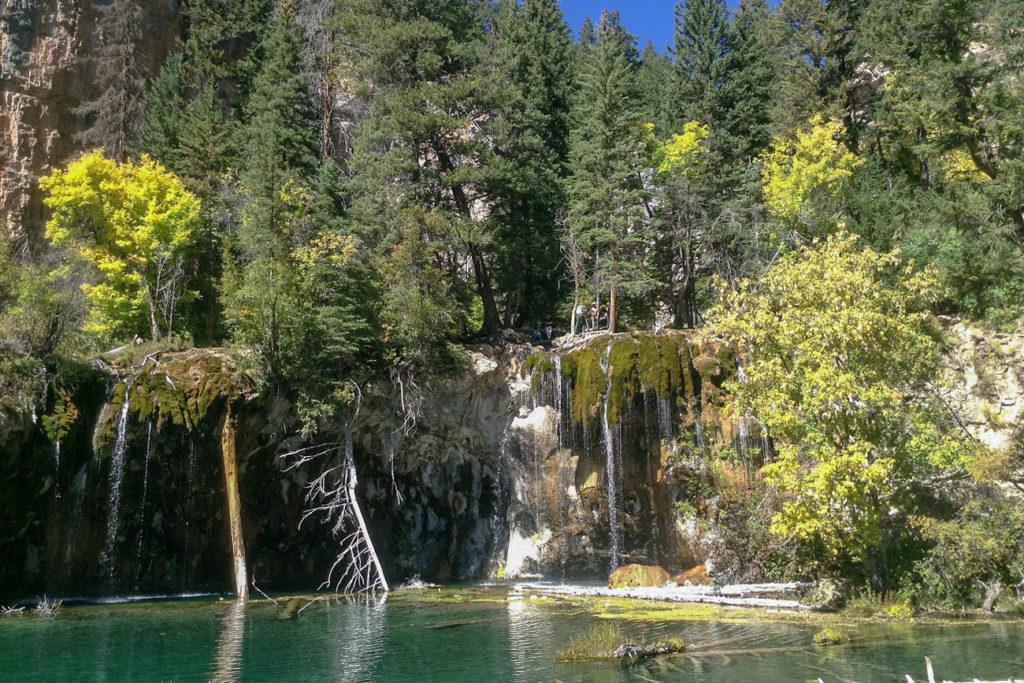
Colorado Parks and Wildlife and the U.S. Forest Service are restricting what is open on their lands in the state.
While state parks remain open, CPW is closing all campgrounds, playgrounds and camping facilities.
The Forest Service shuttered restrooms and two warming huts, one in Berthoud Pass and the other in Brainard Lake.
— Alex Scoville
1:32 p.m. — Christmas (music) in March
KOSI 101.1 is going to bring back Christmas music tomorrow, March 27.
Tune in to the station during its morning show between 6 - 10 a.m. to catch those sleigh bells jingling and ring tingle tingling.
“We’ve had a lot of listeners contact us saying they are stressed with all that is going on and asking if we could play some Christmas music just for a bit to calm us down," morning co-host Jenny D. said in a statement.
— Alex Scoville
12:47 p.m. — State stay-at-home order adopted by Denver metro area counties as local orders are rescinded (but not by Denver itself)
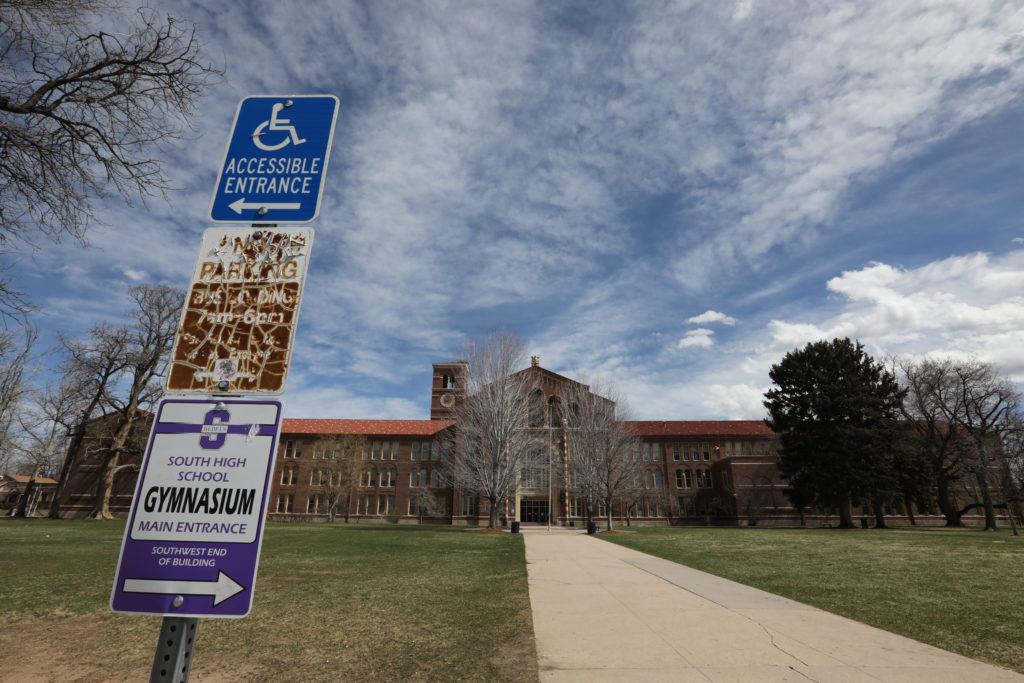
Health agencies representing Boulder, Jefferson, Arapahoe, Adams and Douglas counties have ended their county-wide stay-at-home orders and adopted the statewide order announced by Colorado Gov. Jared Polis on Wednesday.
Boulder County Public Health, Jefferson County Public Health and Tri-County Health Department issued a press release Thursday, saying in part:
"After much discussion and consideration, our three local health departments have decided to rescind our local level Orders and formally adopt the state’s Order. We believe this action will ensure social distancing requirements are consistent across the state, and that our communities are not confused by multiple Orders."
The statewide order took effect Thursday morning. Here's what Coloradans can and can't do under the order.
— Daniel J. Schneider
11:45 a.m. — Beware of scammers trying to take advantage of a crisis
Colorado Secretary of State Jena Griswold is warning Coloradans to beware of possible charity scams during the COVID-19 public health crisis. To limit the possibility of getting scammed, the office is offering these recommendations if you decide to make a contribution:
- When giving to a charity, it’s important to confirm the organization is registered and current at checkthecharity.com.
- When receiving solicitation calls, ask if the caller is a paid solicitor. If they say yes, ask for their name and the name of their company, the paid solicitor’s registration number which can be verified here, and the percent of your donation that will go to charity. If they refuse to give you any of this information, do not give to that charity.
- Be on alert of newly formed charitable organizations. These may be formed with the best of intentions, but an existing charity will likely have a track record which you can review.
- Be sure to ask what charitable purposes or programs would benefit and whether or not anyone will benefit locally. Call the charity itself to confirm the details of the solicitation and any local benefits.
- Watch out for charities with names that sound similar to well-known, reputable organizations. Sometimes these names are intended to confuse donors.
- Do not assume that charity recommendations on Facebook, blogs or other social media have already been vetted.
- Be wary if a charity fails to provide detailed information about its identity, mission, and finances and how the donation will be used. Reputable charities will gladly provide the information requested.
- Do not pay in cash. Donate by check made payable to the charity or use the charity's website to donate by credit card.
“The COVID-19 public health crisis is tremendously impacting all of Colorado,” said Secretary Griswold in a press release. “Unfortunately, in times of crisis like this, we’ve seen scams looking to exploit Coloradans’ generosity. I encourage Coloradans to continue to give to those in need, but do so wisely by making sure their donations are going to the right place.”
— Taylor Allen
11:40 a.m. — Statewide stay-at-home order updated to include more critical services
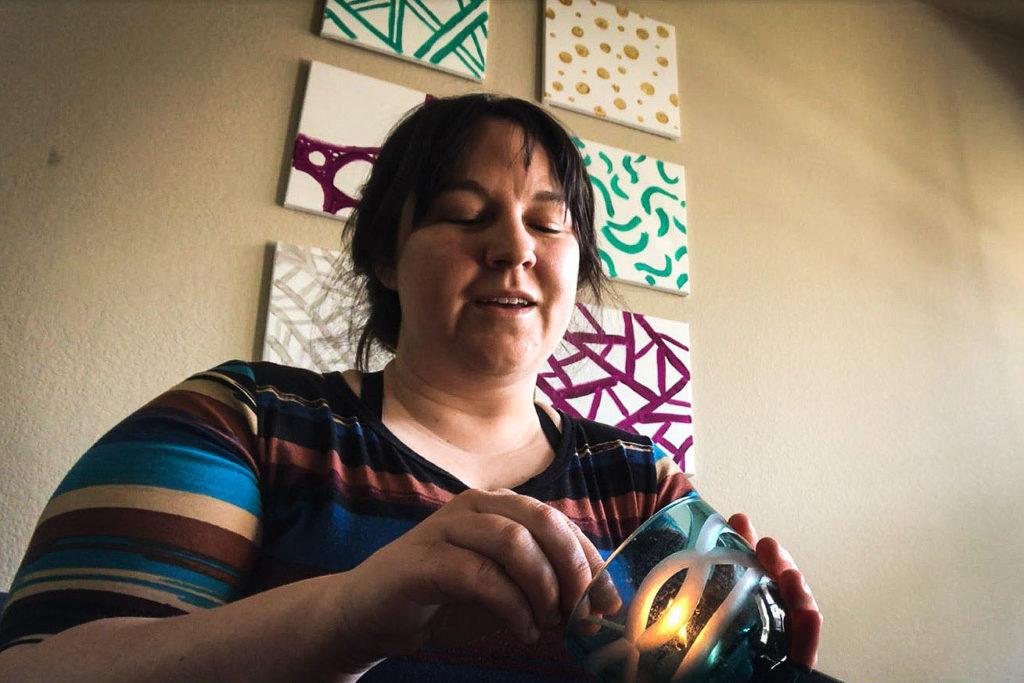
This morning the Colorado Department of Public Health and Environment issued and updated public health order that added more critical services to the list in yesterday's executive order, including:
- K-12 public and private schools for the purpose of providing meals, housing, facilitating or providing materials for distance learning, and providing other essential services to students.
- Postsecondary institutions including private and public colleges and universities for the purpose of facilitating distance learning or performing essential functions, provided that Social Distancing Requirements are observed, such as security, medical and mental health service, housing, food service, and critical research
- Pastoral services for individuals who are in crisis or in need of end-of-life services
- Houses of worship may remain open, but must practice social distancing or use electronic platforms
- Professional services, such as legal, title companies, or accounting services, real estate appraisals and transactions
The new public health order reiterated that all critical services still are subject to social distancing requirements and encouraged to put telework options in place.
Read the updated order in its entirety plus the full list of Dos and Don'ts.
— Daniel J. Schneider
11:14 a.m. — We're going to feel unemployment impacts
New data on weekly unemployment insurance claims released by the Department of Labor Employment and Training Administration shows just how unprecedented the coronavirus impact is.
The initial claims filed nationally for the week ending on March 21 were 3,283,000. In Colorado alone, there were 19,429 claims filed — a 737 percent jump over the week prior.
— Jim Hill
10:50 a.m. — Signs that life goes on
9:27 a.m. — No Mesa Verde, BTW
Mesa Verde National Park in southwestern Colorado has been closed to all visitors amid the COVID-19 outbreak. The move comes just a few days after federal officials also closed Rocky Mountain National Park over fears of the novel coronavirus spreading there. Officials say there are many online digital tools to explore the park and that they will update people on the status of the park reopening later.
— Andrew Villegas
8:55 a.m. — Aurora schools distribute meals from the parking lot
School districts across the state are trying to make sure students still get fed, even while they are at home during the COVID-19 outbreak, including breakfast, lunch and dinner.
They include schools in Denver, Aurora, Grand Junction, Colorado Springs, Pueblo and many other places. Five Aurora Public Schools workers were distributing meals to families on Wednesday from the parking lot of North Middle School on Montview Avenue. One of them, Kerry Hawley, says it's fulfilling to serve others.
"Yesterday we did 864 meals. I actually was on Spring Break last week, and I was like, 'I want to come back. I want to come back.' And they were like, 'Come in on Monday.'"
Hawley's crew traveled to three other schools that day, as part of a program that visits 16 schools each day, five days a week.
— Hart Van Denburg
7:44 a.m. — Woof
7:27 a.m. — Bennet, Gardner Praise the new gov't aid package
Colorado Sens. Michael Bennet and Cory Gardner both voted for the $2 trillion dollar coronavirus aid package, which passed the Senate late Wednesday night, 96-0.
Democrat Bennet said the health and economic crisis is unlike any the country has faced before. He said the bipartisan deal is a big step toward “addressing the unprecedented scope of this crisis and the need for urgent action to support American workers and families. The extra time taken to get this right resulted in a much better final product.”
Senators have been in marathon negotiating sessions since the weekend. Bennet said the extra time was used to increase direct cash payments and boost funding for hospitals, state and local government and to bolster unemployment insurance.
Republican Gardner urges the Democratic-led House to act quickly. “The longer Congress waits to act, more Americans will suffer,” Gardner said in a statement. “No excuses, no delays — the American people need relief now.”
The House is expected to vote on Friday, via voice vote. That means not all members will have to be present.
House leaders promised members at least 24 hours to review the text. But Gardner pointed out the text is available and members could be reviewing it now. While large portions of the text floated around Congress since the weekend, the full finalized text for the country’s largest recovery package was released last night.
The Coronavirus Aid, Relief and Economic Security Act includes $1,200 in direct cash payments for adults earning up to $75,000 and $500 per child. Unemployment insurance to last 4 months, with an additional $600 on top of what states pay. And lots of money for government and businesses: $150 billion for hospitals, $150 billion for state and local government to help cover costs related to the pandemic and $350 billion in small loans for businesses.
The Senate floor was crowded as senators cast their vote, some giving elbow bumps, before heading out the door. Like many co-workers and colleagues across Colorado, they aren’t expected to be back together for a few weeks, working from home instead.
Majority Leader Mitch McConnell scheduled the next in-person vote in the Capitol for April 20.
— Caitlyn Kim
7:09 a.m. — Outbreak, stay-at-home orders are a 'body blow' for ski hills
Ski resorts across the West that were shut down amid coronavirus fears are grappling with an economic blow at a time they would normally be welcoming hordes of spring break revelers. March is usually one of the busiest months for Colorado resorts, which tallied a record 13.8 million skier visits last winter.
Now, chair lifts sway silently in the breeze and typically bustling base villages are all but empty. Industry leaders say many resorts generate about a quarter of their revenue from March through the end of the season.
As tourists and skiers hunker down, and as public health orders have been installed, ski areas have even been closing off uphill access for those in the mood to hike up and slide down. Loveland closed access on Tuesday to dissuade large crowds from gathering there and Steamboat resort became the latest to shut off access on Wednesday evening.
Vail, Keystone, Breckenridge, Copper Mountain, A-Basin and Crested Butte had previously closed off uphill access.
— Associated Press, Jim Hill
7:01 a.m. — Don't forget...
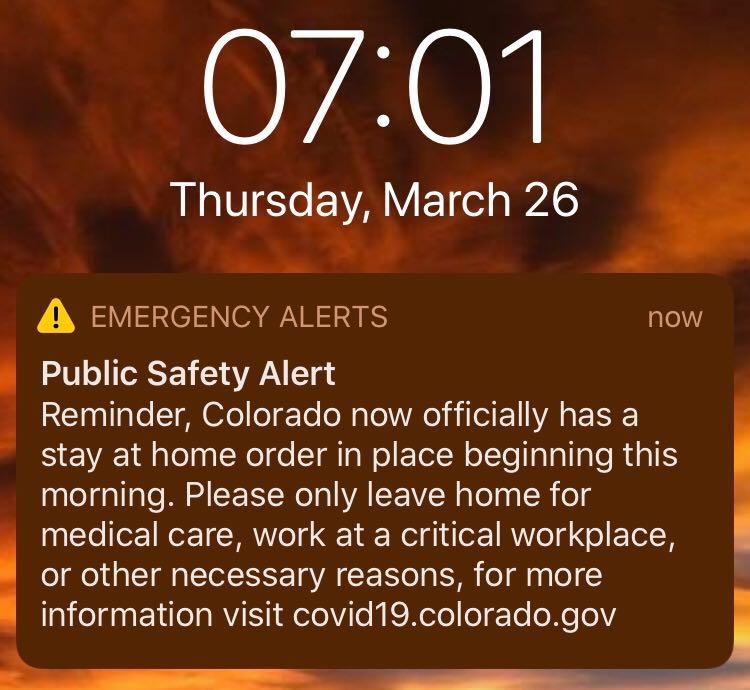
6:24 a.m. — The whole state is under a stay-at-home order
Late Wednesday, Gov. Jared Polis said he was issuing a statewide stay-at-home order that begins today. People should not leave their homes until at least April 11 except to shop for food, seek medical care, care for dependents or other essential reasons.
"Now is not the time to die and we will not let it happen on our watch," he said
The governor said the stay-at-home order became necessary to prevent the spread of the coronavirus. The key point of the move is to allow the state's medical system to ramp up for an anticipated surge of people who are sick and in need of hospital care. Polis has spoken about securing enough intensive care unit beds and the state having enough ventilators.
The state has started to distribute the equipment it received from the Strategic National Stockpile. The supplies include nearly 50,000 N-95 face masks, 117,000 surgical masks and108,000 pairs of gloves. The shipment did not include any ventilators.
The state said the delivery covers the equivalent of one full day's supplies across the medical system and are being distributed to counties based on need.
— Hayley Sanchez, John Daley, Kelley Griffin and The Associated Press
6:19 a.m. — Today's latest case count
Colorado now has more than a 1,000 known positive cases — 1,086 to be exact — and 147 are hospitalized across 36 counties.
There have been 19 deaths due to COVID-19.
— Jim Hill







